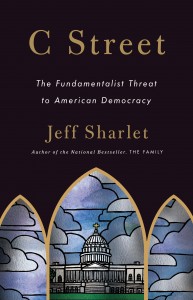In Lieu of Hobbits
An interview with Jeff Sharlet about his new book of essays, Sweet Heaven When I Die: Faith, Faithless, and the Country In Between. Sharlet is the bestselling author of The Family and C Street and a contributing editor to Harper’s and Rolling Stone. Mellon Assistant Professor of English at Dartmouth College, he taught literary nonfiction through New York University’s Center for Religion and Media from 2006-8 and created The Revealer for the Center in 2003.
by Ashley Baxstrom
The only reason I write this stuff is because I’m a nerd whose heart was broken when he discovered there are no hobbits. ~ Jeff Sharlet, author of Sweet Heaven When I Die
Jeff Sharlet is best known for The Family and C Street, a pair of books about what he calls “the avant-garde of American fundamentalism,” a religious and political movement that fuses conservative evangelicalism with a laissez-faire, expansionist vision of American power. But really, Sharlet he has been writing about the people in whom belief lives, and the meaning that comes during – and out of – their experience of faith. Over several years, while writing those two books, Sharlet wrote the stories of those he met and their experiences with belief, with causes, with struggle and survival. In his latest book, Sweet Heaven When I Die, Sharlet gathers these stories together to explore an American landscape that is at once a whole country and yet a world apart. He writes about friends and about strangers who become less strange. Continue Reading →

